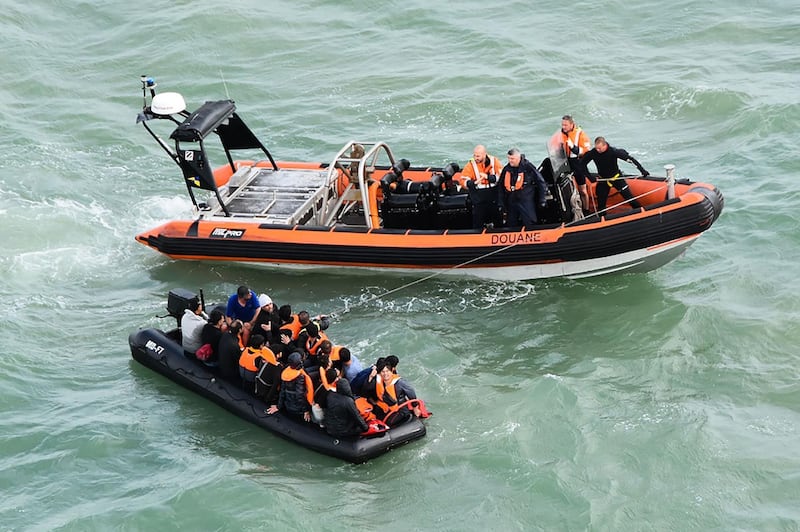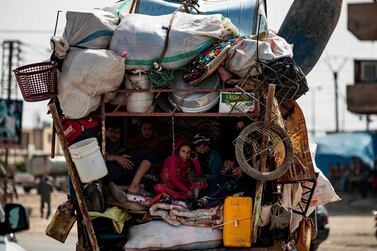Britain and France have agreed to implement a plan to increase prevention of migrants trying to cross the English Channel in small boats, after two bodies were found washed up on a French beach.
The bodies of two young Iraqis were found on a beach in Le Touquet, near Calais. The two, aged 17 and 22, were trying to cross to the UK on a small dinghy.
The “enhanced action plan” was agreed to by British Home Secretary Priti Patel and French Interior Minister Christophe Castaner.
Under the pact, patrols on French beaches will be doubled to “provide 24/7 cover” and reduce the number of attempted crossings.
It will also include an increase in sharing intelligence to tackle criminal gangs, with UK agents being sent to France, the British Home Office said.
Greater effort will be made to engage directly with migrants to discourage them from making the journey.
Ms Patel said she was confident the new agreement would lead to “a considerable reduction” in illegal crossings.
“I am absolutely committed to doing everything in my power to stop these dangerous Channel crossings, which are putting vulnerable lives at risk,” she said.
The plan came into force on September 28 after a summer marked by a rapid rise in the number of migrants trying to reach the UK from France.
In September, the highest number of migrants to be intercepted in the Channel was recorded when 86 men, women and children were picked up in five incidents.
Maritime authorities in northern France say almost 1,500 migrants tried to reach the UK by sea between January and August, a marked increase on the 586 who attempted the crossing in all of 2018.
Migrants’ rights groups have linked the rise to a police crackdown on camps in the French cities of Calais and Dunkirk.
Mr Castaner said the agreement “marks a new and very concrete level of commitment of the UK to tackle irregular crossings of the Channel”.
“Eradicating this phenomenon should allow us to save lives as well as reduce the migratory pressure in Northern France,” he said.








